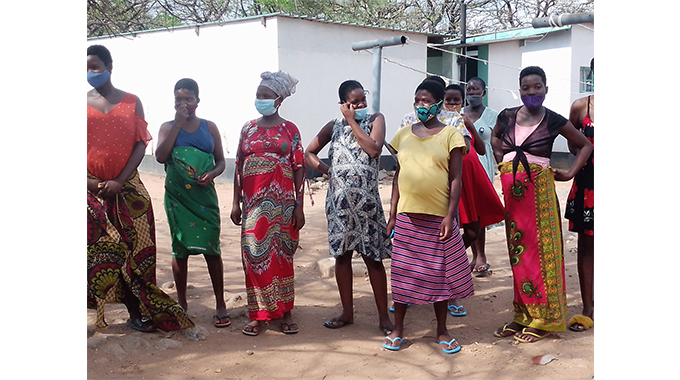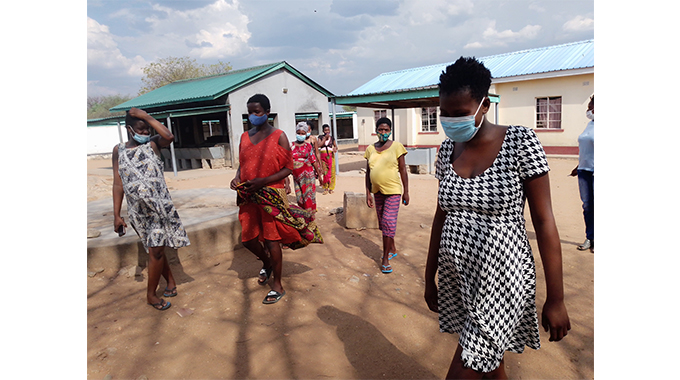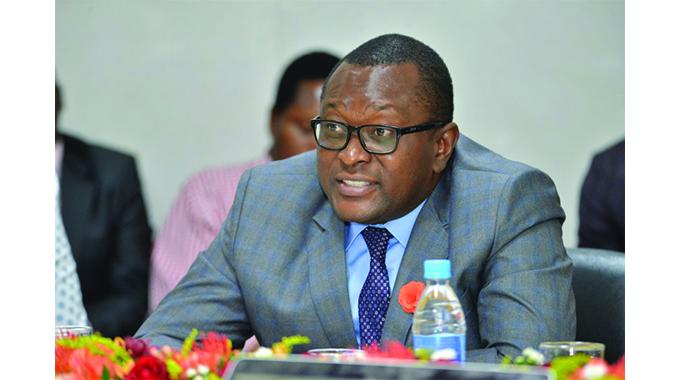Lack of SRHR information, services in rural areas leaves girls vulnerable

Mthabisi Tshuma, Features Correspondent
A HEAVILY pregnant young girl enters Madlambudzi clinic in rural Matabeleland South province.
She joins her peers of the Adolescent Girls and Young Women (AGYW) to sit by the mother’s waiting shelter.
For them their cry is that the age at which AGYW can have access to family planning should be revised and not only be accessible in gruesome cases like rape.
For Taboka Khuphe* (name withheld for ethical reasons), the 15-year-old said they were being chased away from clinics when they intended to acquire SRHR.
“As a young girl I am now pregnant all because when we came here with my peers to acquire services about SRHR we were told to go back home.
“We were told to bring our parents for consent but for some of us who only live with male figures it becomes a challenge for us to talk about such issues with them,” said Khuphe.
Growing up and being bred in the bush thickets of Mangwe and Bulilima districts in rural Matabeleland South province is not a walk in the park for many young girls.
Dropping out of school, fleeing to neighbouring Botswana and South Africa, child marriages, teenage pregnancies and maternal mortalities are a simple depiction of the day to day circumstances for many girls down south of the country.
All this leads down the drain to the lack of Sexual and Reproductive Health and Rights (SRHR) information and services.
In every society, SRHR are an urgent piece of medical services, yet they likewise comprise a fundamental component for accomplishing gender equality and promoting women’s rights.
They give women the likelihood to settle on independent choices about their own bodies and sexuality.
SRHR information ranges from one knowing his or her sexual rights, knowing when to negotiate for safe sex, knowing when to say no to sex, knowledge of how to use condoms correct and consistently and use of family planning.

SRHR services may include clinical services like administration of contraceptives, HIV and STI testing and counselling and initiation of AntiRetroviral Therapy (ART).
Many think sometimes that poverty is only being hungry, naked and homeless but the poverty of being unwanted, unloved and uncared for is the greatest poverty. This is the predicament of many young girls in rural Matabeleland who if they fall pregnant, they lose hope in their lives.
In all this, the single biggest problem in lack of SRHR communication is the illusion that it has taken place.
The global chaos of the Covid-19 pandemic has not been to any favour as the induced lockdown has come hard in disturbing dissemination of critical information and services.
Often as young women their voices are overshadowed in spaces where they need to hear especially issues to do with SRHR.
SRHR services are not available to everyone, for example family planning as seen with the notable rise in teenage pregnancies for that matter unwanted pregnancies because there is no access to family planning methods.
In the Matabeleland South province rural communities the family planning method products are sold in the name that the areas largely use foreign currency due to the proximity to Botswana and South Africa but alas these young girls do not have consistent source of income which can’t even put food on the table.
Of late there has been a hurdle in accessing depo provera in local rural clinics as it was only accessible to those who could pay for it.
Another challenge the girls face is having to walk long distances in order to access SRHR services.
A villager from Sinotsi in Bulilima district Isabel Nare said there is a need to increase the number of SRHR clinical services in the rural areas.
“I travel 15 kilometres to reach the nearest health facility which is Lady Stanley Hospital to access family planning. Thus as villagers we see it fit that there should be at least a mobile clinic twice a month in our villages.
“There is also a need to have peer led family planning cadres in the villages so as to increase the uptake of family planning as myths on use of family planning methods still linger in the communities hence the need for comprehensive SRHR education and services,” said Nare.
Women and children rights activist Ms Sandra Muzama said there is a huge gap of support to young girls on issues to do with SRHR.
“There is a glaring gap in the support of AGYW living in the rural areas in accessing SRHR information, commodities and services owing to economical interruptions where in general the economic climate is too retarded to adequately and equitably deliver health services which then leaves the marginalised rural populations more at risk with derelict infrastructure shortage of staff and medical supplies.
“Socio-cultural norms too are a barrier for girls in the rural areas in getting quality age appropriate information on their sexual health. Rural areas still uphold tradition significantly and even some harmful practices as such information dissemination on sex issues does not have a free passage as the subject is taboo to be talked about more so with young people as it is believed it ignites early onset of sexual activity which can only be far from the truth,” said Ms Muzama.
“Since Comprehensive Sex Education (CSE) is also not mandated in schools a lot of information is failing to cascade to the girls which has seen a surge in early marriages, teenage pregnancy, HIV and other STIs.
“The Public health Act states that any persons below the age of 16 can not access health services without parental escort as also the age of consent to sex is 16 which automatically limits the age of access to contraception to 16 and above too,” she said.
Ms Muzama said this is unfortunate because girls way younger than 16 are having sex and most will drop out of school having fallen pregnant.
“This situation has also paved way for illegal abortions where there is a thriving underground termination of pregnancy industry especially in the rural areas where traditional,medically untrained midwives are rampant.
“So it becomes critical for these legislations to be changed to suit the realities of our communities and that is to make contraception accessible to all ages but with emphasis on responsibility that is attached on having sex, taking contraception and consultation with the girls should be an entry point where the views and needs of the beneficiaries themselves will inform policy.
“Lobbying has been done especially in recent years with the realisation that school going girls were dropping out of school due to pregnancy,also cases of sex with minors have been on the rise hence there has been calls to make SRH commodities and services accessible to all ages and in all areas equitably but it takes lengths of time to approve and effect policy,” said Ms Muzama.
She said the call has been met with some resistance from certain conservative groups who feels giving young girls access to contraception is a sure way of decaying our moral fiber as a nation but the reality is girls as young as nine are having sex to the point of some opting for sex work as a livelihood strategy which makes it pertinent to plan for such unprecedented situations. – @mthabisi_mthire











Comments